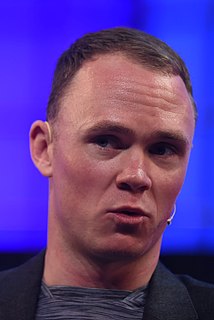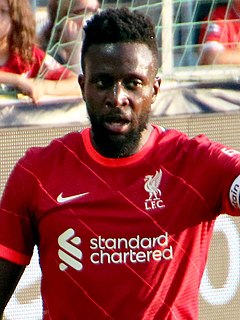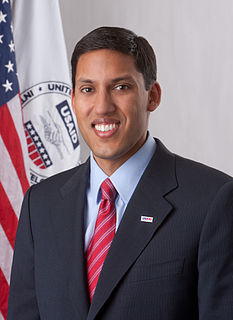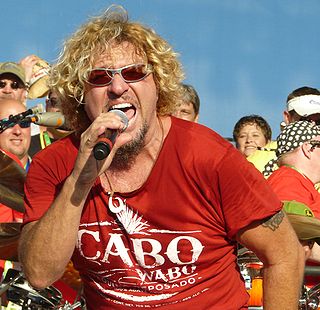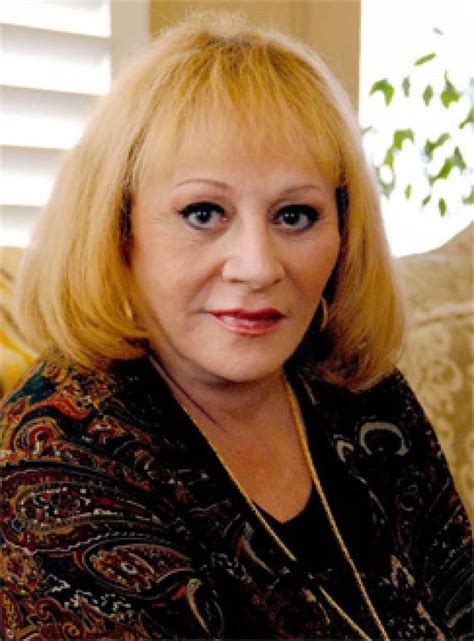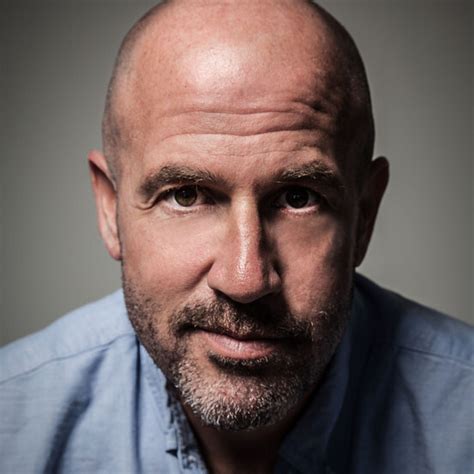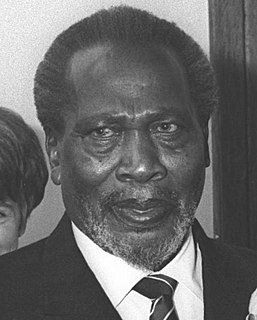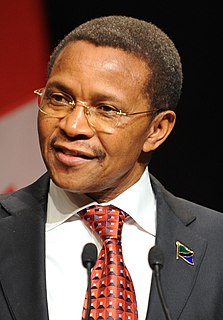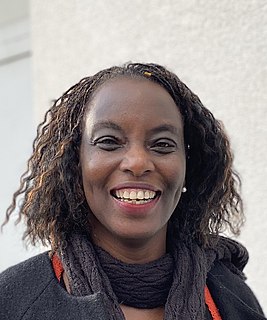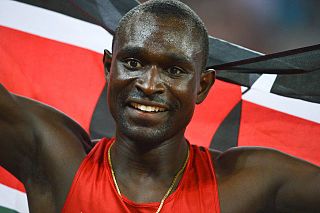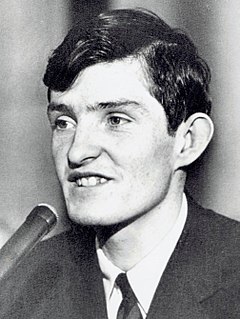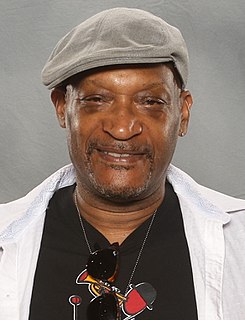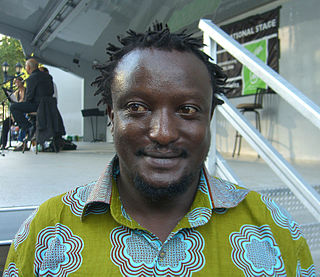Top 176 Kenya Quotes & Sayings - Page 3
Explore popular Kenya quotes.
Last updated on December 4, 2024.
For countries such as Kenya to emerge as economic powerhouses, they need better infrastructure: roads, ports, smart grids and power plants. Infrastructure is expensive, and takes a long time to build. In the meantime, hackers are building 'grassroots infrastructure,' using the mobile-phone system to build solutions that are ready for market.
It's funny how much one learns from context. Throughout that entire visit to Kenya, with all its meetings, there was an experience of the place that taught me things I couldn't learn by reading global newswires. The fact that I learned so much makes me wish that I could visit more places. So many of the zones, of course, are closed, so one knows about them only in secondhand ways. My research has only scratched the surface. There are thousands of zones around the world. There's just so much work to do.
I saw a dead elephant in one of Kenya's natural reserves. Around her were footprints of her baby elephant. This was just so sad, as three days before, perhaps the mother was still taking the baby around to play and to drink water. In her mind, she probably was thinking they had a life of decades to be together. However, the poaching happened so fast and everything collapsed. Without the protection of the mother, the baby elephant is likely to die too. That moment changed me.
Nowhere is this challenge more critical -- and the need for action more pressing -- than in the Horn of Africa. From Kenya to Ethiopia, Djibouti to Somalia, the devastating consequences of drought, desertification and land degradation are playing out before our eyes. The worst drought in 60 years has placed more than 13.3 million people -- predominately women and children -- in need of emergency assistance.
There're some places that are more difficult or dangerous to navigate and I wouldn't look forward to going back. Like I'd much rather go back to Afghanistan - which fascinates me - quicker than I'd go back to spend a week walking around Nairobi, Kenya, which is a great and easy way to get yourself killed.
I had been in Africa for six weeks on a safari with my family. I said, "You know, I made a lot of money. I am getting kind of burned out. I really want to do something special." So I went on this extended trip to Egypt, Kenya, Sardinia - I really did it, man. I was coming home, and while I was gone, they changed the speed limit from 65 to 55.
I have seen a lot of men, for example, who will make a will and include their daughters whether they are married or not. And perhaps the greatest change of attitude is that today, at least in Kenya, if you don't send your child to school - unless it's a matter of poverty or religion, and it is not that there no schools - then people wonder, "why the hell don't you send your children to school?" Now that's a very big jump from when I was going to school and educating girls was an exception to the rule.
When resources are degraded, we start competing for them, whether it is at the local level in Kenya, where we had tribal clashes over land and water, or at the global level, where we are fighting over water, oil, and minerals. So one way to promote peace is to promote sustainable management and equitable distribution of resources.
As the CIA tried to find itself, the threat of international terrorism emanating from the Middle East, Africa, North Africa and Central and Southeast Asia grew with each strike: the first World Trade Center attack in 1993, the bombings of U.S. embassies in Kenya and Tanzania in 1998, and the 2000 attack on the U.S.S. Cole.
Where there has been racial hatred, it must be ended. Where there has been tribal animosity, it will be finished. Let us not dwell upon the bitterness of the past. I would rather look to the future, to the good new Kenya, not to the bad old days. If we can create this sense of national direction and identity, we shall have gone a long way to solving our economic problems.
How does the saying go? When two locusts fight, it is always the crow that feasts.' Is that a Luo expression?' I asked. Sayid's face broke into a bashful smile. We have a similar expression in Luo,' he said, 'but actually I must admit that I read this particular expression in a book by Chinua Achebe. The Nigerian writer. I like his books very much. He speaks the truth about Africa's predicament. the Nigerian, the Kenya - it is the same. We share more than divides us.
Monsanto will not come empty-handed. Monsanto will come with a big bag of money. And because these governments are poor, when they are shown money for their research institutions, for their universities, for their professors, they are very quick to say yes, and I can tell you that when Monsanto came to Kenya, they were able to be given permission to do research in one of our research institutions, and yet there was not a single law to control such research.
There are certain areas where foreign investors can help the local people to generate wealth, and improve their quality of life. Some companies, for example, Del Monte, which produces pineapples in Kenya, pay a huge amount of taxes, I am sure, to the Kenyan government, and they do create jobs for thousands of locals.
I think of Wangari Mathai in Kenya. If she started out saying she wanted to plant 20 million trees, she would have been laughed at. In fact, the foresters and the government did laugh at her. They said, "Villagers? Un-schooled villagers? Planting trees? No, no, no, it takes foresters." So she planted trees anyway.
Kenya is rapidly developing its industry and manufacturing, and its cultural identity as a new country. We had a humongous history pre-British, and when we were colonized and violently reshuffled, we had to decide who we were again. We couldn't rest on the stories and the cultures of our great-grandparents.
I beg young people to travel. If you don't have a passport, get one. Take a summer, get a backpack and go to Delhi, go to Saigon, go to Bangkok, go to Kenya. Have your mind blown. Eat interesting food. Dig some interesting people. Have an adventure. Be careful. Come back and you're going to see your country differently, you're going to see your president differently, no matter who it is. Music, culture, food, water. Your showers will become shorter. You're going to get a sense of what globalization looks like.
Sidney Blumenthal is very close friend of Secretary [Hillary] Clinton. And her campaign manager, Patti Doyle, went to - during the campaign, her campaign against President [Barak] Obama, fought very hard. If you look at CNN this past week, Patti Solis Doyle was on Wolf Blitzer saying that this happened. Blumenthal sent McClatchy, highly respected reporter at McClatchy, to Kenya to find out about it.She failed to get the birth certificate.When I got involved, I didn't fail. I got him to give the birth certificate [of Barack Obama]. So I'm satisfied with it.
If you're Maasai Mara National Park in Kenya, if you're in Serengeti National Park in Tanzania, you don't get out of your vehicle and go walking around amid the lions and the leopards. You stay in your Land Rover. You stay in your safari van, and you look out the windows or you look out the pop top at these animals. I know by experience how badly that can work out if you violate those guidelines.
Navajo infants get so attached to cradleboard that they cry to be tied into it. Kikuyu infants in Kenya get handed around several"mothers," all wives to one man. . . . Mothers in rural Guatemala keep their infants quiet, in dark huts. Middle-class American mothers talk a blue streak at them. Israeli kibbutz mothers give them over to a communal caretaker . . . Japanese mothers sleep with them. . . . All these tactics are compatible with normal health--physical and mental--and development in infancy. So one lesson for parents so far seems to be: Let a hundred flowers bloom.
I stand before you and the world humbled by this recognition and uplifted by the honour of being the 2004 Nobel Peace Laureate. As the first African woman to receive this prize, I accept it on behalf of the people of Kenya and Africa, and indeed the world. I am especially mindful of women and the girl child. I hope it will encourage them to raise their voices and take more space for leadership.
We are for aiding our allies by sharing of our material blessings with those nations which share in our fundamental beliefs, but we're against doling out money government to government, creating bureaucracy, if not socialism, all over the world. We set out to help 19 countries. We're helping 107. We've spent 146 billion dollars. With that money, we bought a 2 million dollar yacht for Haile Selassie. We bought dress suits for Greek undertakers, extra wives for Kenya[n] government officials. We bought a thousand TV sets for a place where they have no electricity.
Kids still like to laugh, kids still like the joy of learning. When you have a cool science experiment, I don't care where you're from. When you have that aha moment, whether you're in China or Kenya, that kid's eyes are gonna open up. So I really try to focus more on what we have in common than what differs us.
I am indebted to anyone who has ever written anything. I am indebted to the unknown carver of pictograms on a gallery of stone panels, which I encountered and stood in silence before on top of a distant odd-shaped hill in northern Kenya. For whatever reason the muses have most unexpectedly invited me to join this immense procession. I am humbled and delighted.
The nation is sick; trouble is in the land, confusion all around...But I know, somehow, that only when it is dark enough can you see the stars. And I see God working in this period of the twentieth century. Something is happening in our world. The masses of people are rising up. And wherever they are assembled today, whether they are in Johannesburg, South Africa; Nairobi, Kenya; Accra, Ghana; New York City; Atlanta, Georgia; Jackson, Mississippi; or Memphis, Tennessee, the cry is always the same: 'We want to be free.'
Brother Colm is one of the best coaches who's ever been here in Kenya. He's been, of course, my coach since I started running. He saw me in high school when I was still doing 400, and 200 meters. He decided for me to join his club and we'd been training for one month. That is when he saw me and he thought I could do a good 800.
When I first came into international running, most runners did about 60-70 miles or running a week. I guess that is still the standard except for Kenya and Ethiopia. I was doing 150-250 a week and some weeks as high as 350. It was unheard of! But, because I did not have access to what was possible and standard, I had to set my own possibilities and standards. I was just lucky enough to be out of the loop and not know.
I started as an engineer. I migrated to philosophy and international politics. And I did my studies about African - Africa democracy and democratization in Africa, taking Kenya as a model. And then, while I was doing so in 1996 in South Africa, Al Jazeera was established. So they requested me to be an analyst on African affairs.
I went to L.A., and I was on two different studio movies at Fox and Sony, but they were never made in the end. When the second one wasn't happening, I ended up doing an episode of 'Who Do You Think You Are?' for the BBC, and went on a roots trip from England to Kenya, India, and pre-partition India in Pakistan, where my family originally came from.
There is no reason why a company like Monsanto, for example, that is pushing GMOs, cannot go to Kenya, partner with the university, partner with the research institutions, and try to promote - in a responsible way - advanced techniques to help farmers. But this should be done in such a way that the farmers' livelihoods are not undermined because the government is irresponsible or careless, or because it is compromised.
Just across the ocean in, say Kenya or Tanzania, a two-gender system is vital for the survival of most of the folks who live there. Men do men's work, women do women's work, and so it all gets done and the jackals can't get into the hut and eat grandpa. So, the future of the transgender movement is like the future of all human rights movements: whatever the state of things in your area now, with some work it all gets a little bit better all the time, even if it is sometimes three steps ahead and two steps back.
In Kenya, one of our biggest exports is coffee. Where do you grow coffee? You grow coffee in the land. To be able to grow coffee you need rain, you need special kinds of soils that are found on hillsides, and that means you have to protect that land from soil erosion so you don't lose the soil. You also want to make sure that when the rains come you're going to be able to hold that water and have it go into the ground so that the streams and the rivers keep flowing and the ground is relatively humid for these plants.
I did a film in Nairobi, Kenya called 'The Last Elephant,' with John Lithgow, Isabella Rosallini, and James Earl Jones. So I was in seventh heaven, alright? About a year later I get a call from my agent and he says they want to see you for this project called Candyman. I thought he was joking so I hung up.
I have learned that I, we, are a dollar-a-day people (which is terrible, they say, because a cow in Japan is worth $9 a day). This means that a Japanese cow would be a middle class Kenyan... a $9-a-day cow from Japan could very well head a humanitarian NGO in Kenya. Massages are very cheap in Nairobi, so the cow would be comfortable.
Donald Trump doesn't have clear contact with reality, though I'm not sure it qualifies as a bona fide delusion. He needs things to be a certain way even though they aren't, and that's one reason he lies. There can also be a conscious manipulative element to it. When he put forward, and politically thrived on, the falsehood of President Obama's birth in Kenya, outside the United States, he was manipulating that lie as well as undoubtedly believing it in part, at least in a segment of his personality.
Barack the boy was raised by his white maternal grandparents; his Kenyan father abandoned him. The qualities Americans appeared to find universally appealing in the ambitious, affable Obama - his confidence and calm, and his commitment to community and kin, education and excellence - these came from Kansas, not Kenya.
The government of Qatar, as I mentioned, has proposed to come and lease Kenya's Tana River delta in order to farm there. What I am not sure of is, has an environmental impact assessment been made to ensure that exploiting this delta for agricultural activities is the best way we can use the delta?We must be concerned about the long-term impact of agricultural activities in the delta.
Southall Broadway, in west London, has been a constant part of my life from the day I arrived in England as a baby from Kenya in 1962. My parents rented a room in one of the terraces off the Broadway, and I've seen it change from an ordinary English high street to what is now 'Little India.' with a confident Asian community.
Having travelled to some 20 African countries, I find myself, like so many other visitors to Africa before me, intoxicated with the continent. And I am not referring to the animals, as much as I have been enthralled by them during safaris in Kenya, Tanzania and Zimbabwe. Rather, I am referring to the African peoples.
